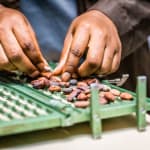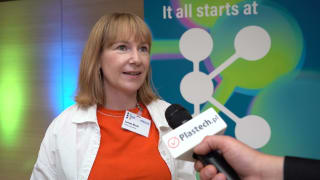
Niche Cocoa Industry, Ghana’s largest fully integrated cocoa processor, recently signed a deal with Sidel to advance into previously uncharted territory: beverage production. The company is planning to support Ghana’s School Feeding Programme by providing 5.6 million pupils with ready-to-drink (RTD) chocolate milk, aseptically packaged in 250 ml PET bottles, for 100 school days per year. In this, Niche Cocoa is relying on Sidel’s long-standing expertise in aseptic PET bottling as well as their capabilities in packaging design to manage a greenfield project.
As one of Africa’s fastest-growing economies in 2019, Ghana continues to perform well economically, with the GDP expected to grow even further in 2020. The country’s economy is largely based on two export goods: gold and cocoa. After Ivory Coast, Ghana is the world’s second-biggest cocoa producer, with the world’s highest-quality bulk cocoa beans coming from the country. Currently, annual per capita chocolate consumption in Ghana is only 0.5 kilograms. This picture is most likely to change rapidly due to a growing local demand for premium consumer products that require high-end refining and marketing.
While Carbonated Soft Drinks (CSD) are strongly rooted in local consumption routines, healthier beverages, like juices and milk, currently occupy a smaller segment of the beverage market. The challenge that Niche Cocoa and other market players are facing now is, on the one hand, to reach consumers with conveniently packaged products at prices they can afford, and, on the other hand, to attract end users via packaging design and educate them on good nutritional routines to build additional market share.
The fastest-rising local cocoa processor in Ghana branch out to drinks
Niche Cocoa Industry was founded in 2011 and currently manufactures high-quality, semi-finished cocoa products for export, such as cocoa liquor, cocoa butter, cocoa cake and cocoa powder. In 2017, Niche commenced the production of chocolate for the local and international markets. The company, based in Tema, Ghana, near the capital, plays an important role in facilitating the transfer of technical knowledge within Ghana’s cocoa processing industry while improving the livelihoods of local cocoa farmers.

Today, Niche Cocoa is the fastest-rising local cocoa processor in the country. Edmund A Poku, the company’s managing director, explains, “With an installed processing capacity of 90,000 metric tons per year, an annual turnover of US$120 million and about 450 employees, we are excited about the opportunity to introduce the first and only locally produced and aseptically bottled chocolate milk in Ghana. Thanks to a loan from the Dutch entrepreneurial development bank FMO in autumn 2019, Niche Cocoa was able to purchase manufacturing equipment from Sidel, which will allow us to produce chocolate drinks.” These products will be sold in Ghana, bringing the company one step closer to the vision of becoming Africa’s leading producer of chocolate and other cocoa products.
5.6 million school children to benefit from CSR initiative
Poku continues, “Thanks to the FMO’s loan, we are getting ready to produce and bottle shelf-stable, fortified chocolate milk in PET for Ghanaian school children daily under the country’s recently launched ‘Ghana School Feeding Programme.’ We are planning to serve approximately 5.6 million children across 261 districts in a total of 9,350 schools, both primary and secondary, on 100 school days per year. With this program, we want to provide a healthy, nutritional alternative to our people.”

“We decided to partner with Sidel on this project because of our shared passion for uncompromising food and beverage quality,” says Poku. “What set Niche Cocoa apart on the market is our clear focus on top-quality products, combined with the flexibility to fit consumers’ needs while valuing organic, regional cocoa processing,” he adds. The certifications strengthen the company’s commitment they have obtained from a wide array of organizations, including FSSC 22000, UTZ, Fair Trade, Organic and FDA, as well as the Ghana Standards Authority (GSA). Absolute food safety addressed by a complete aseptic PET solution.”



